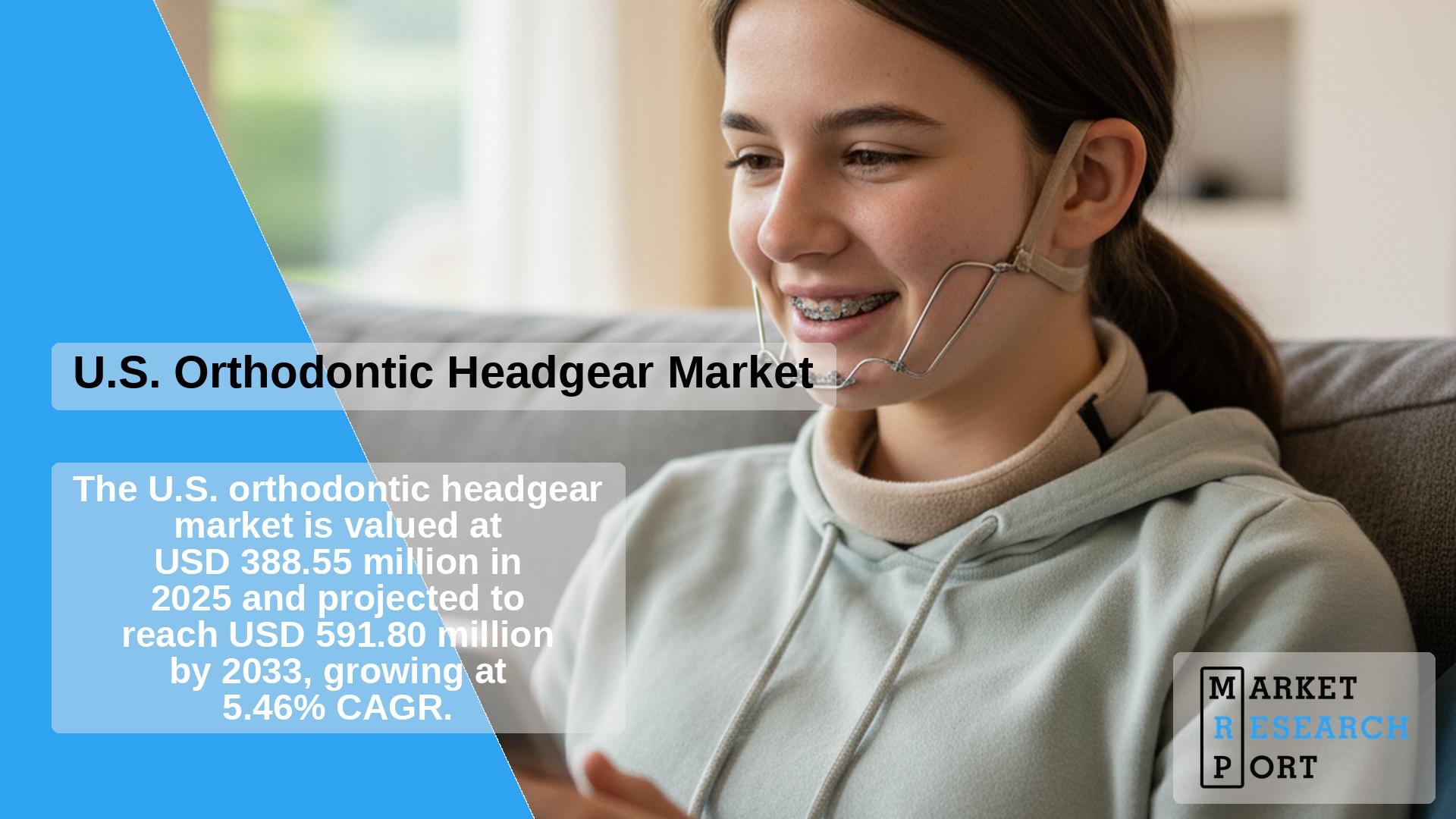
The U.S. orthodontic headgear market was valued at approximately USD 368.43 million in 2024 and is projected to reach USD 591.80 million by 2033, growing at a compound annual growth rate (CAGR) of 5.46% from 2025 to 2033. Growth is driven by the high prevalence of malocclusions among children and adolescents, a substantial orthodontic patient base, and a robust network of orthodontic specialists.
The significant incidence of malocclusions in the pediatric population fuels demand for orthodontic headgear. Conditions such as Class I and Class II malocclusions, deep overbite, and crossbite are common, emphasizing early diagnosis and intervention as effective treatments to ensure proper jaw and dental alignment.
The large orthodontic patient base sustains steady demand, with many children and adolescents undergoing treatment. Increasing parental awareness of oral health, advances in digital orthodontics, and improved appliance comfort foster compliance and market expansion.
Additionally, rising aesthetic consciousness among adolescents and their guardians motivates early and increased orthodontic appliance adoption, further supporting market growth.
The U.S. orthodontic headgear industry is highly innovative, driven by advancements in design, materials, and customized digital solutions. Notable developments include 3D-printed customized devices and digitally planned treatment protocols that improve effectiveness and patient comfort.
Moderate mergers and acquisitions activity helps consolidate market positions, expand product lines, and enhance distribution capabilities among leading players.
Rigorous U.S. regulatory requirements ensure device safety and performance, encouraging the production and adoption of high-quality orthodontic headgear.
The cervical pull headgear type leads the market due to its clinical effectiveness in modifying lower jaw growth. Its design improvements in comfort and ease further increase patient compliance.
The reverse pull facemask segment shows the fastest growth, driven by increased early detection of underdeveloped upper jaws (Class III malocclusions), and enhanced facemask designs that improve aesthetics and comfort.
Children and young teens dominate in both market share and growth rate due to the common practice of early orthodontic intervention during developmental stages.
Older teens also demonstrate significant market growth driven by late-stage corrections and increased acceptance of modern, comfortable headgear solutions.
| Report Attribute | Details |
|---|---|
| Market Size (2025) | USD 386.68 million |
| Revenue Forecast (2033) | USD 591.80 million |
| Growth Rate (CAGR 2025-2033) | 5.46% |
| Base Year for Estimation | 2024 |
| Historical Data | 2021–2023 |
| Forecast Period | 2025–2033 |
| Segments Covered | Product, Age Group |
| Regional Scope | United States |
This analysis includes detailed revenue growth forecasts and trend analysis (2021–2033) segmented by:
How large is the U.S. orthodontic headgear market?
Estimated at USD 368.43 million in 2024 with an expected rise to USD 591.80 million by 2033.
What growth rate is forecasted?
The market is projected to grow at a CAGR of 5.46% from 2025 to 2033.
Which product segment holds the largest market share?
The cervical pull headgear segment, accounting for 48.32% share in 2024.
Who are the leading manufacturers?
G&H Orthodontics, Ortho Technology, Rocky Mountain Orthodontics, Ormco Corporation, Great Lakes Dental Technologies, and Ortho Kinetics Corporation are among the key players.